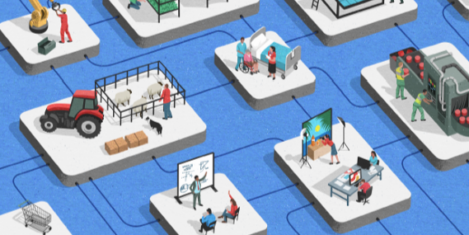May 25, 2023
Four million UK employees have changed careers due to a lack of flexible working options
 New research from the CIPD suggests that an estimated 4 million people have changed careers due to a lack of flexible working options, while an estimated 2 million have left a job in the last year for the same reason. As a result, the CIPD is warning that businesses may face a talent exodus if they fail to offer more flexible choices to people. The CIPD’s latest report, which explores employee and employer perspectives towards flexible and hybrid working practices, highlights that offering them is key to retaining and attracting staff, addressing the current skills shortage and fostering inclusive workplaces. More →
New research from the CIPD suggests that an estimated 4 million people have changed careers due to a lack of flexible working options, while an estimated 2 million have left a job in the last year for the same reason. As a result, the CIPD is warning that businesses may face a talent exodus if they fail to offer more flexible choices to people. The CIPD’s latest report, which explores employee and employer perspectives towards flexible and hybrid working practices, highlights that offering them is key to retaining and attracting staff, addressing the current skills shortage and fostering inclusive workplaces. More →














 A significant majority (85 percent) of employees feel like they are just a cog in the machinery of their organisation and 43 percent have no idea how their performance contributes to business success, according to a new survey of employee experience and expectations. According to the
A significant majority (85 percent) of employees feel like they are just a cog in the machinery of their organisation and 43 percent have no idea how their performance contributes to business success, according to a new survey of employee experience and expectations. According to the 























May 10, 2023
How to eliminate tech-shaming in the workplace
by Aaron Taylor • Comment, Technology, Workplace